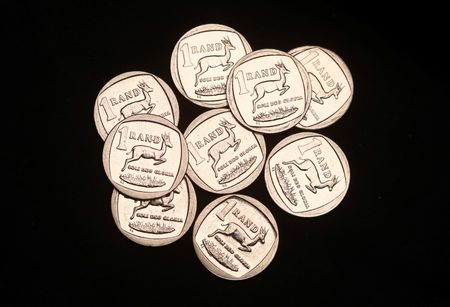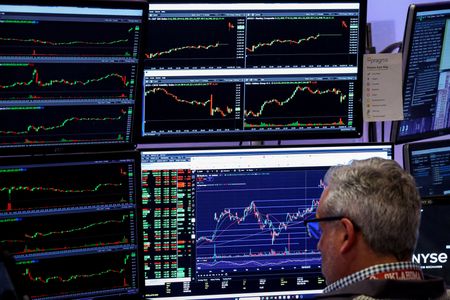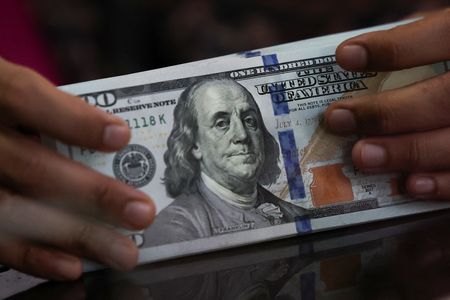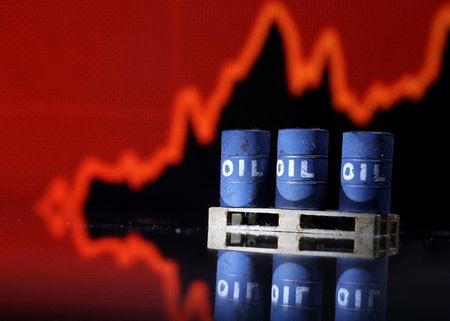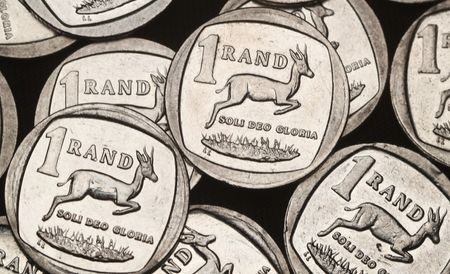By Erwin Seba
(Reuters) – Oil prices rose on Friday after a Ukrainian drone attack suspended loadings from the largest port in western Russia, but gains were capped by concerns about U.S. demand.
Brent crude futures settled at $66.99 a barrel, up 62 cents, or 0.93%. U.S. West Texas Intermediate crude finished at $62.69, a gain of 32 cents, or 0.51%.
Early in the day, crude reacted to the drone attack on Russia’s northwestern port of Primorsk, which led to a suspension of oil loading operations overnight, an official from Ukraine’s SBU security service said.
“Those attacks on Russian energy infrastructure have room to drag down Russian crude and refined product exports,” UBS analyst Giovanni Staunovo said.
But later in the day, gains shrank as traders continued to focus on a revised U.S. jobs report issued earlier in the week along with higher inflation figures.
“The economic data is not supportive of a rally,” said John Kilduff, partner with Again Capital. “The overall weight is down and the trend is bearish.”
The U.S. economy likely created 911,000 fewer jobs in the 12 months through March than previously estimated, the U.S. Labor Department said on Tuesday.
The department said on Thursday the consumer price index rose 0.4% in August, the biggest gain since January, after increasing 0.2% in July.
The markets are also watching for sanctions or tariffs from the Trump administration aimed at reducing use of Russian crude by India and China.
“Any potential for the tariffs to India and China to harm exports, then we would see Russian barrels off the market,” Kilduff said.
The Brent and WTI benchmarks fell by 1.7% and 2% respectively on Thursday.
The International Energy Agency said on Thursday global oil supply would rise more rapidly than expected this year because of planned output increases by the OPEC+ group comprising the Organization of the Petroleum Exporting Countries and allies such as Russia, according to an agency report.
However, OPEC’s own report later in the day made no change to its relatively high forecasts for oil demand growth this year and next, saying the global economy was maintaining a solid growth trend.
On the supply side, India’s largest private port operator, Adani Group, has banned tankers sanctioned by Western countries from entering all of its ports, three sources told Reuters and documents show, potentially curbing Russian oil supplies.
India is the biggest buyer of Russian seaborne oil, mostly shipped on tankers that are under sanctions by the European Union, the United States and Britain.
(Reporting by Erwin Seba in Houston, Seher Dareen in London, Sam Li and Lewis Jackson in Beijing; Editing by Susan Fenton, Chris Reese and Nia Williams)



